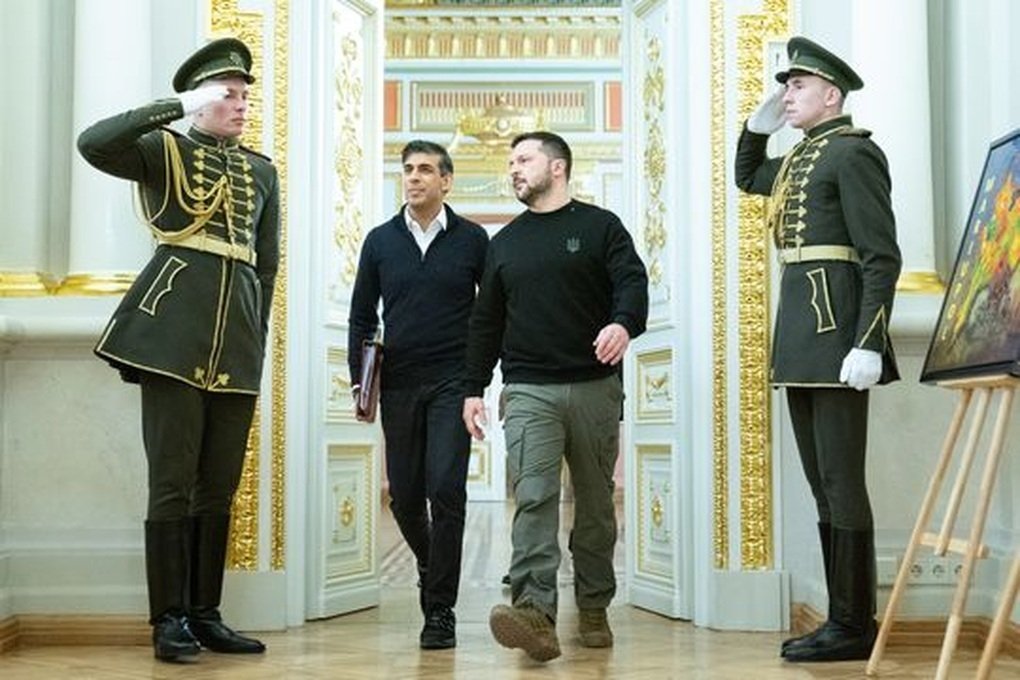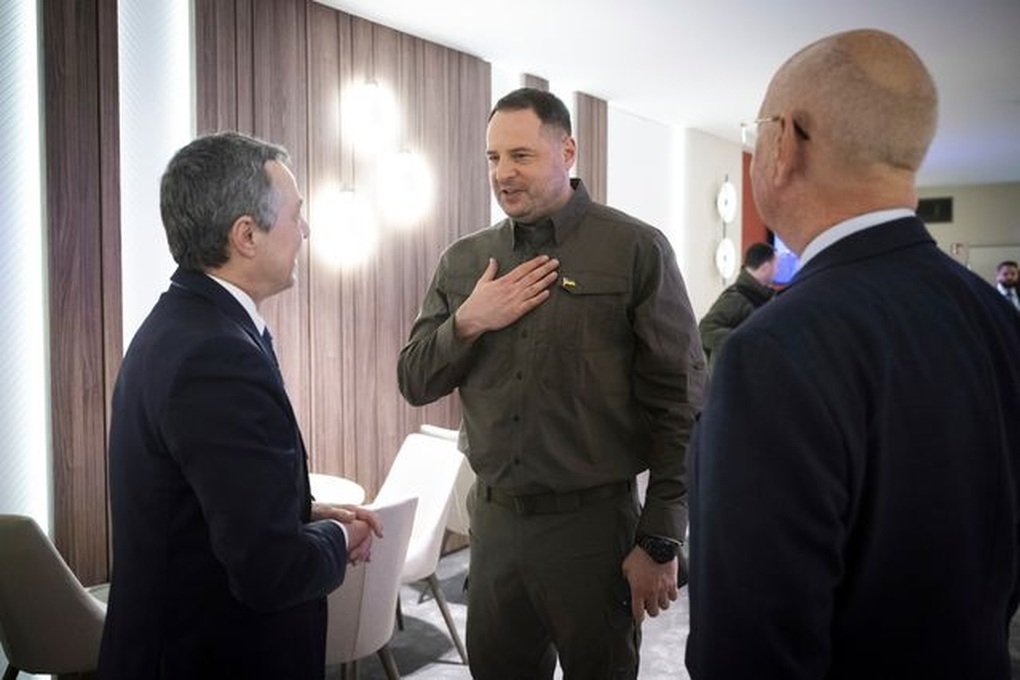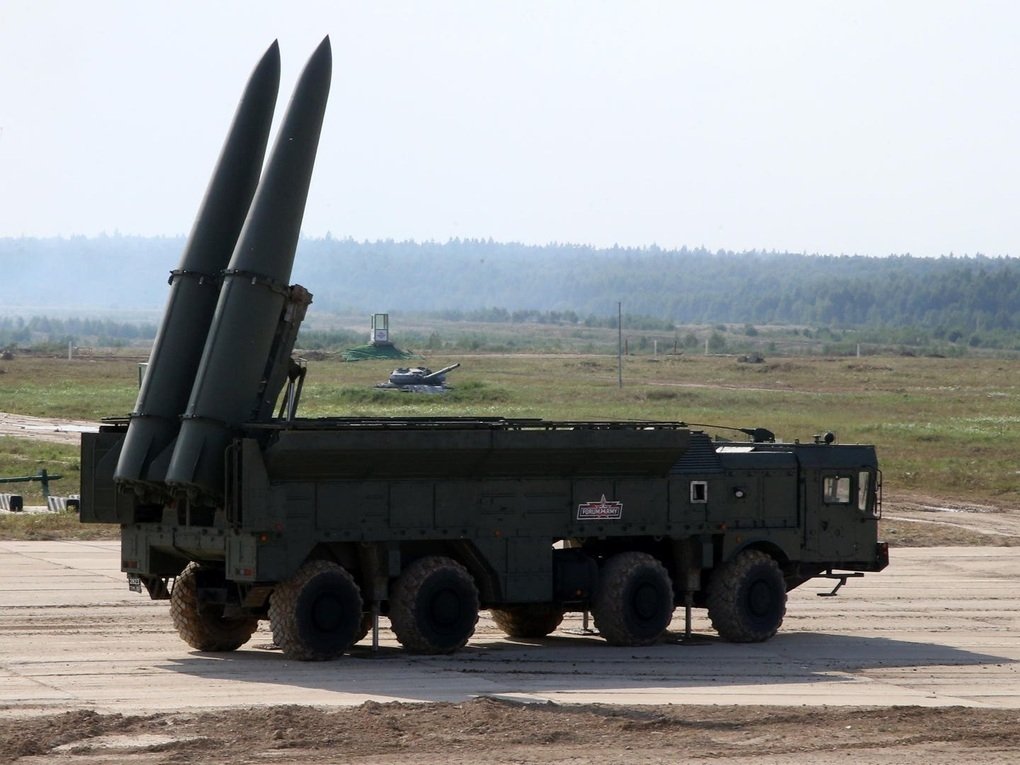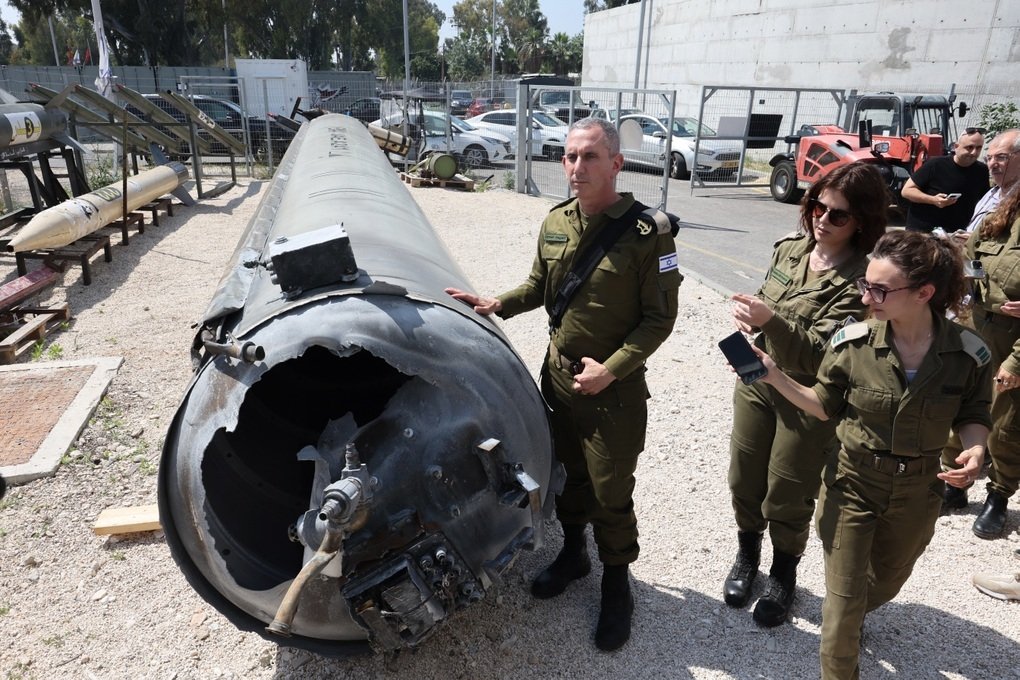(Dan Tri) – The peace meeting before the World Economic Forum (Davos) is considered a `big stage` for Ukraine to call for increased Western support, but hope for progress is very fragile.
The Chief of Staff of the President of Ukraine was present in Davos, Switzerland on January 14 to chair negotiations on ending hostilities (Photo: AP).
As Ukraine prepares to enter its third year of full-blown conflict with Russia, the country’s leaders find themselves fighting on a `new front`: attracting the attention of their allies.
Since the outbreak of the Hamas-Israel conflict, Western attention has shifted to the Middle East.
Diplomats and military officials are now even more focused on it, after the United States and Britain attacked the Houthi group in Yemen in retaliation for attacks on Western shipping and naval escorts.
While conflict rages in the Middle East, the war in Ukraine has bogged down with no sign of any progress.
Russian President Vladimir Putin still claims to maintain the goals of the special military campaign, which the Ukrainian side has always denied.
Diplomats also say Ukraine’s leadership is not interested in negotiations that could force it to cede territory to Russia, even as Kiev faces growing political obstacles.
Moscow has recently gained the initiative on the battlefield in many places, although Kiev’s forces are also struggling to achieve significant victories.
Outside Ukraine, support for Kiev has waned.
But Kiev and some of its strongest allies continue to push for these funds.
On January 14, Ukraine continued to meet with developing countries and Western allies in Davos, Switzerland to discuss a fair and lasting outcome to the war.
Discussions are taking place in Davos, Switzerland, ahead of the World Economic Forum, where the wars in the Middle East and Ukraine will be central topics.
Assistant Secretary of State James O’Brien leads the US delegation.
Many difficulties
While Ukraine’s initiative is unlikely to be effective, those involved in the negotiations on January 14 said about 80 countries and international organizations attended, including the United Nations and the EU.
President Zelensky, the leader who met President Biden at the White House last month, is also expected to speak at this economic forum.
`Today we meet at a difficult moment in the struggle for Ukraine’s freedom,` the British Prime Minister told the Ukrainian parliament and emphasized, `we must be ready for the fact that this will be

President Zelensky welcomed British Prime Minister Sunak to visit Kiev on January 12 (Photo: Reuters).
New French Foreign Minister Stephane Sejourne arrived in Ukraine on January 13, on his first official trip.
However, this is the only bright spot in Ukraine’s gloomy picture.
Diplomats involved in the peace discussions said on Tuesday that they appeared to have little chance of changing the positions of major neutral countries including India, Indonesia and Saudi Arabia.
The momentum behind the peace discussions waned as the world’s attention turned to the Israel-Hamas conflict in October 2023 and Washington faced growing international criticism for
Ukraine hopes to use the talks to drum up support for its key demands to stop the fighting, including the withdrawal of all Russian forces before talks begin.
Several Western diplomats said Russia signaled in the fall that it would be willing to negotiate a ceasefire, with the possibility of freezing the conflict along its current lines.
However, President Zelensky said last week that the ceasefire would only serve Russia’s interests, giving Moscow more time to consolidate its forces and weapons.
The Ukrainian Parliament is considering mobilizing hundreds of thousands of additional soldiers.
US and European officials affirmed that they will not pressure Kiev to negotiate a ceasefire.
No one thought that the war in Ukraine would end before the US presidential election in November.
President Zelensky also expressed concern that, if he returns to power, Mr. Trump will do so by forcing Ukraine to accept unfavorable negotiating conditions with Russia.


